Meet the team
Kevin Pan, Project Lead (BSc Biotechnology 2021)
Cai Linton, Head of Outreach and Business Development (MEng Molecular Bioengineering 2022)
Réka Trón, Head of Funding and Competitions (BSc Biological Sciences 2020)
Ram Pillai, Consultant in Business Development and Research (MSc GDS Novel Therapies 2019)
Jésus Miguéns-Blanco, Consultant in Research and Experimental Design (PhD Microbiome 2021)
Sho Joseph Ozaki Tan, R&D Lead (BSc Medical Biosciences 2020)
Elena Shmakova, Research and Experimentation (BSc Biochemistry 2021)
Evan Whooley, Research and Experimentation (BSc Biological Sciences 2020)
Seong Hyun Ma, Research and Experimentation (BSc Biochemistry 2021)
Yuruo Lin, Research and Experimentation (BSc Biological Sciences 2021)
Reiss Jones, Research and Experimentation (BSc Biological Sciences 2021)
Tom Resink, Research and Experimentation (BSc Biochemistry 2021)
Yuan Chen, Research (BSc Chemistry 2021)
Jedididah Cheung, Research and Outreach (BSc Biological Science 2021)
Get in touch
Our project
The primary focus of Multus Media is to create a low-cost, serum-free growth medium suitable for the Clean Meat industry with the aim of reducing the negative impact of the livestock industry on land use, GHG emissions, antibiotic use and freshwater use.
With a growing world population, there are no signs of a decrease in meat consumption and it is placing a substantial burden on the environment and the Earth’s natural resources. Today, the livestock industry accounts for 70% of land-use, 15% of greenhouse gas emissions, 50% of antibiotic use, and 27% of freshwater use.
The nascent industry that is ‘Clean Meat’ has grown out of stem-cell biology and regenerative medicine. The concept is to make the same end-product as the livestock industry such as burgers, steaks, fillets, and nuggets from cells grown in large bioreactors with a process that is much like brewing beer. By taking a small sample of cells from an animal, scientists can feed them with a growth medium and promote endless cell division along with targeted stem cell differentiation, allowing tons of meat to be produced from that single sample.
However there are a few key challenges that need to be addressed before we will see such products on supermarket shelves. The biggest challenge is cost and, for this industry to realistically succeed in convincing meat eaters to buy Clean Meat products, this must be reduced.
Current estimates quote 50-80% of production costs result solely from the growth medium used to nourish the cells. The most common medium incorporates Foetal Bovine Serum which is not only animal-based but also displays wide batch-to-batch variation, making it unsuitable for the Clean Meat industry. Serum-free alternatives have been established but at a cost. Essential-8, the current gold-standard medium sold by Thermo fisher, costs about $400/litre and, with 100g of meat requiring more than 2 litres to grow, this is too expensive.
Creating a low-cost, serum-free growth medium suitable for the Clean Meat industry is the primary focus of Multus Media.
We will be synthesising key proteins in yeast and optimising their yield, bioactivity and stability for large-scale growth of Clean Meat. By making a food-grade product, much of the expensive down-stream processing and purification can be eliminated, allowing us to rapidly scale-up and meet the demand of a growing industry. We have a number of academic advisors within Imperial College, as well as business coaching from the Imperial Enterprise Lab. We have received generous support from the Imperial College Advanced Hackspace, and Imperial College Synthetic Biology Society.
Support from Hackspace and the wider Imperial community
The team met through the Imperial College Synthetic Biology Society (SynBIC) and really came together when we worked on a project in the Hackspace Biolab with £1000 available to the best team. We discussed a number of ideas, but the concept of using existing technologies in novel applications presented an exciting opportunity to get hands-on experience and strive for something which was ambitious yet attainable. We were all passionate about the prospect of working to serve an emerging industry that aimed to address important issues in terms of the environment and food security. This project planted the seed to enter additional competitions such as the Venture Capital Catalyst, which encouraged us to delve deeper into our research and consider the potential commercial applications.
Since then the coworking space at Hackspace has been our meeting area– it is a fantastic space to discuss ideas with access to free drinks! We have also been using the Hackspace Biolab to conduct our experiments whilst working towards our proof of concept. A number of small equipment pieces, such as falcon tube holders, have also been fabricated in the Makerspace!
We’ve really enjoyed the flexibility of the space which allows us to be a bit ‘DIY’ and resourceful with equipment and the Hackspace staff have been great.
Successes and learning
Being invited to exhibit our work at the New Harvest 2019 conference at MIT was really big for us. It allowed us to meet company founders, investors, representatives from larger companies and we got great exposure. As the conference was dedicated to Clean Meat, we were able to gain a real insight into the state of the industry and its aspirations for the future.
In addition, being a finalist of the Faculty of Natural Sciences – Make a Difference (FoNS-MaD) competition has been pivotal in our development. Access to lab-space, academic mentorship and a pot of money has allowed us to focus on the project over the summer and really push towards our first prototype. On a more internal level, finding key academic papers reinforced our belief that we can achieve what we set out to do. As a team of mostly undergraduates, using these resources has been the foundation of much of our inspiration.
Our first real set-back was not reaching the final of the VCC on the basis of being too early stage. It was a difficult pill to swallow since we really believed in our idea but we did learn from this experience and have bounced back stronger and more experienced. Another set-back has been in our timeline. We are constantly having to review our experimental plan in the light of failed experiments, over-ambitious deadlines and unforeseen circumstances. Again we have learnt from this and we can hopefully be more realistic in our predictions the longer we work in the lab. Finally, internal inefficiencies in terms of structure and focus has cost us a bit of time. Thankfully, everyone is now aligned in their involvement and things are flowing much smoother.
Our advice to makers, hackers, inventors or entrepreneurs
Take as much support as you can and don’t be afraid to ask for it. Our bonus piece of advice is to be consistent with your time and don’t expect miracles overnight.
The future
We are currently working towards a prototype as finalists of the Faculty of Natural Sciences – Make a Difference (FoNS-MaD) competition* and have been working in the lab since the spring. We hope to be growing mammalian cells by mid-September!
Moving forward, we are entering more entrepreneurship competitions and seeking collaboration with Clean Meat companies. Our process will involve a further optimisation and consideration for scale-up. It would be great to see our product being used to grow meat commercially within the next couple of years.
We are waiting to present our first proof of concept before seeking investment or collaboration, although we have begun these conversations already. We are still entering competitions and with these come equity-free grants which is perfect. To help our idea grow, we need to prove that it works and then have access to new equipment and materials which we hope to gain through collaboration.

- Multus Media won the FoNS-MaD competition in October winning £7,000 prize money towards their research. Read the article here.
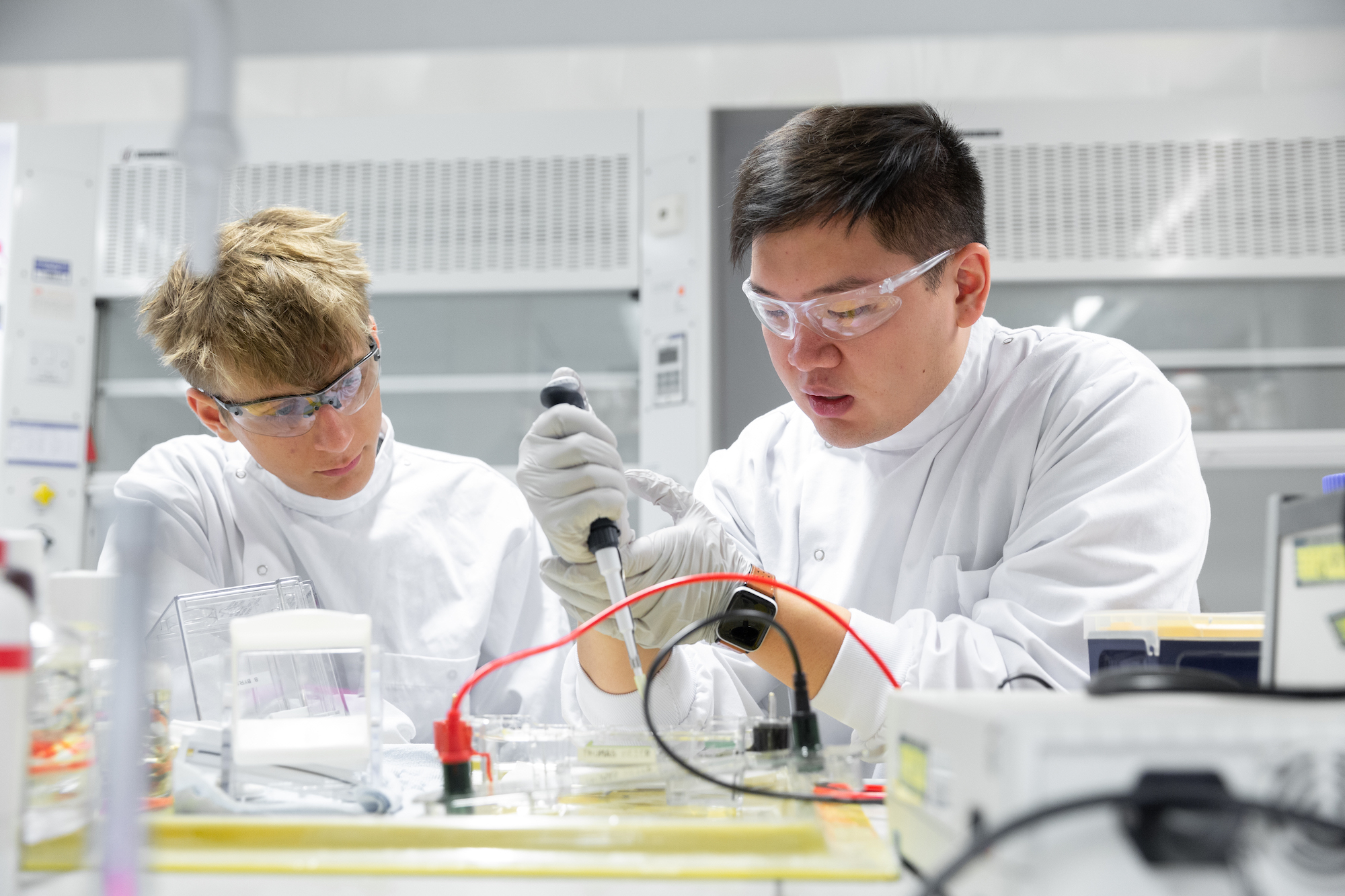
More from Hackspace
Discover what’s going on at the Hackspace.
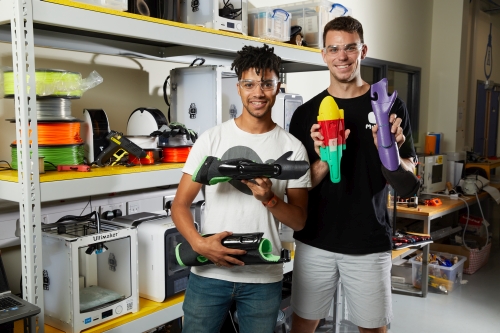
Read our success stories
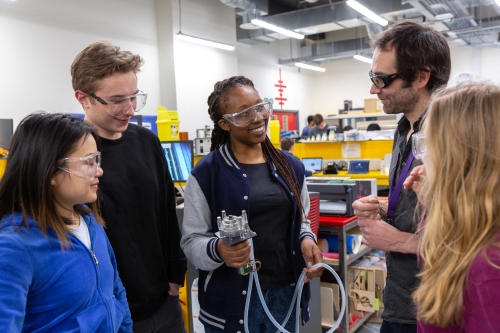
Work with us
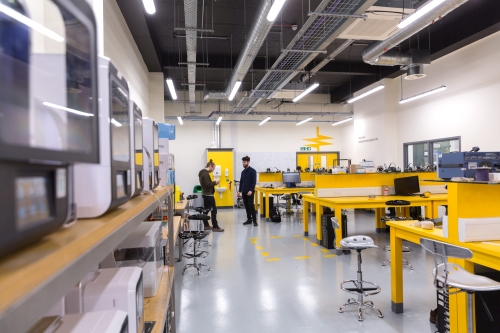
Our facilities
News
Catch up on the latest goings-on at Hackspace.
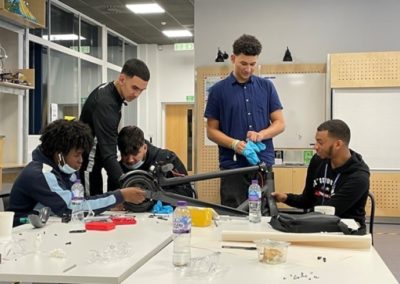
Imperial engineers work with local youth club to design and build e-scooters
Imperial has been working with North Paddington Youth Club to build electric scooters alongside the College's engineers.
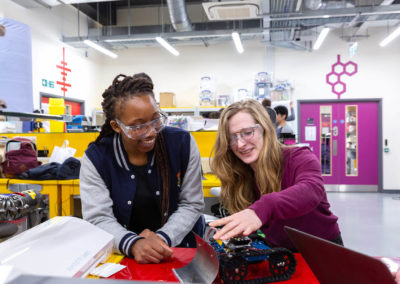
When Science and Art collide: White City Sculpture Challenge
The 2022 Sculpture Challenge will provide students the opportunity to collaborate and bring their vision to reality, resulting in the winning sculpture having a permanent presence at the White City Campus.
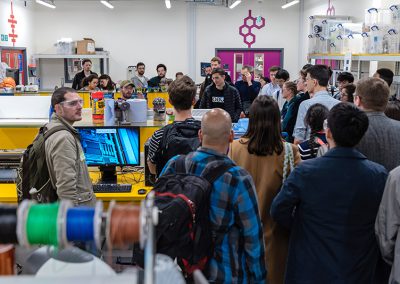
Hackstarter programme launches to support Imperial’s student makers and creators
Imperial College Advanced Hackspace launches Hackstarter to provide £500 prototype development grants.
© Copyright Advanced Hackspace | Powered by Imperial College London | Privacy Policy I Accessibility Statement | Website by Herd
